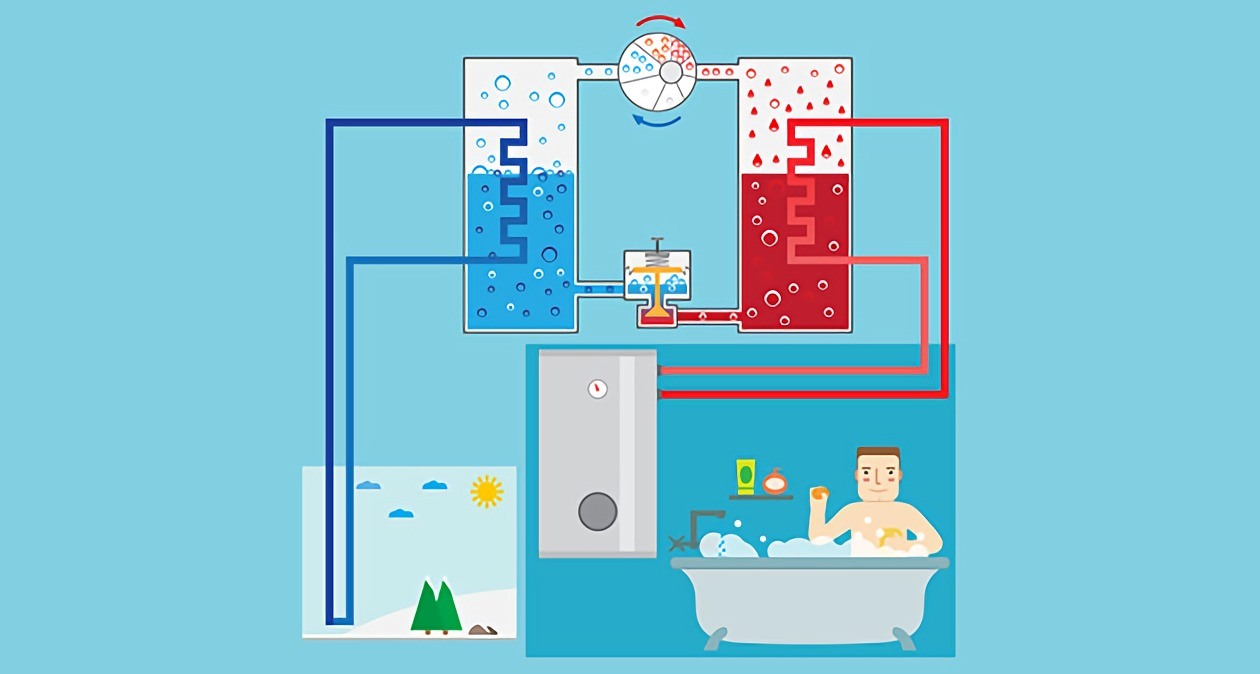
High efficiency heat pumps have many advantages. They reduce the amount of electricity used for heating by up to 40%.[1] They are cheaper to install than gas furnaces. In addition, heat pumps do not put homeowners at risk of carbon monoxide poisoning. There are four main types of high efficiency heat pumps.
1. Air Source Heat Pumps
Air source heat pumps can be used for both heating and cooling. They provide up to three times more energy than they use, saving a homeowner anywhere from $300 to $948 a year in heating and cooling expenses. Moreover, air source heat pumps produce fewer carbon emissions than conventional heating systems and do not require much maintenance.
Until recently, air source heat pumps were not suitable for use as space heaters for homes in subfreezing temperatures. However, recent developments have enabled these heaters to provide sufficient heating to homes in cold regions.
There are many types of air source heat pumps, including ductless, ducted, split, packaged, multi-zone and single-zone. All air source heat pumps use either an air-to-air or air-to-water heating and cooling system. The type that is best for any given home will depend on the home’s size, geographical location and homeowner’s needs.
2. Geothermal Heat Pumps
Geothermal heat pumps can heat or cool a home as well as provide hot water. These pumps create up to five units of heating or cooling for every unit of energy utilized, run quietly and are extremely durable.
Get Started on the Path to a New Career
Fill out our form to learn how we can help you change your life.
There are four main types of geo-thermal heating systems. These are closed loop, horizontal, vertical and pond/lake. The type of system installed will depend on the home’s location and available yard space. A geothermal heat pump can be installed in a home with as little as three or four square feet of outdoor space.
3. Absorption Heat Pumps
While absorption heat pumps are very similar to air source heat pumps, there is one important difference: absorption heat pumps do not run on electricity. Instead, they are powered by alternative heating sources such as natural gas, propane, solar energy or geothermal-heated water. Absorption heat pumps can also provide cooling, as can absorption coolers that operate in the same manner as absorption heat pumps.
Absorption heat pumps and coolers have only been available to commercial enterprises until recently. However, absorption coolers can now be installed in large homes and absorption heat pumps for residential use are currently under development.
4. Ductless, Mini Split Heat Pumps
Ductless, mini split heat pumps are ideal for small homes, apartments and condominiums. They are also a very good option for homeowners who have built an extension on their home and want to either heat or cool it. These heat pumps do not use ducts to enable them to convert a significant amount of energy as over 30% of a home’s energy can be lost on inefficient ductwork.
Ductless, mini split systems are easier to install than other types of space heating/cooling, offer a high level of flexibility and provide up to four air handling units per system. A professional with HVAC certification can help determine which system fits your heating needs best. Given this fact, it is not surprising that technical schools like RSI are offering specialized vocational training in this field.
While each high-energy efficiency heat pump system is different, they have two important points in common: they allow a business or homeowner to save a significant amount of money and protect the environment while staying warm throughout the cold winter months.
Additional Sources
[1] http://www.energy.gov/energysaver/heat-pump-systems
This blog has been labeled as archived as it may no longer contain the most up-to-date data. For a list of all current blog posts, please visit our blog homepage at https://www.rsi.edu/blog/

